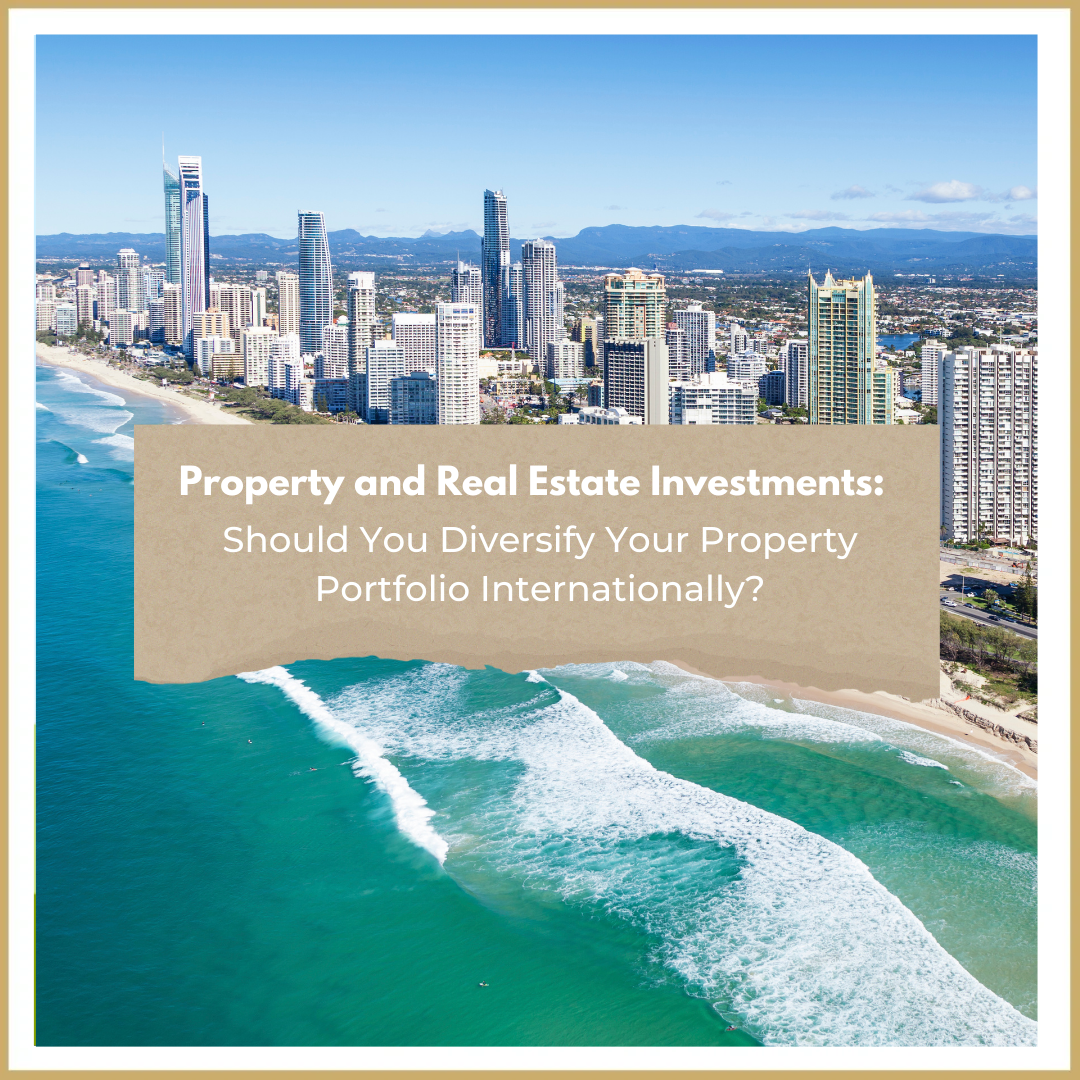For high-net-worth individuals (HNWIs), international property investment can seem like a logical way to diversify wealth and tap into global markets. However, while the allure of owning property in an exotic location is tempting, it’s essential to weigh the opportunities against the risks, particularly for HNWIs whose wealth strategies rely on stable and profitable investments.
This article delves into the opportunities and risks of investing in global real estate, focusing on critical factors such as exchange rate risks, ease of doing business, and legal protections.

Opportunities in Global Real Estate Investment
Diversification
International property investments allow HNWIs to diversify beyond their home market, spreading risk across different economies and currencies.
High-Growth Markets
Emerging markets in developing countries can offer impressive returns on investment due to rapid urbanization and economic growth.
Lifestyle Appeal
Owning property in popular holiday destinations can provide dual benefits—an asset that appreciates over time and a vacation home for personal use.
Currency Arbitrage
Favorable exchange rates during the purchase phase can provide financial advantages, particularly in markets where the local currency is weak compared to the investor’s base currency.

Key Risks and Challenges
1. Exchange Rate Volatility
Exchange rate fluctuations can significantly impact the profitability of international property investments. For example:
- If the Australian dollar strengthens after the property purchase, the value of the property may decrease when converted back into AUD.
- Ongoing costs like maintenance, property taxes, or mortgages in a foreign currency can become more expensive due to unfavorable exchange rate shifts.
For HNWIs, currency risk is a critical factor that often requires sophisticated hedging strategies to mitigate potential losses.
2. Legal Protections and Ease of Doing Business
The ease of purchasing and managing property in a foreign country is heavily influenced by local laws and the regulatory environment. Many investors fail to consider how cumbersome legal processes or insufficient buyer protections can create significant risks.
Top 5 Countries for Property Investment (Ease of Doing Business):
- New Zealand
- Singapore
- Denmark
- South Korea
- United States
These countries are known for their transparent legal systems, strong property laws, and straightforward processes, making them excellent options for HNWIs seeking stable investments.
Challenging Destinations for Property Investment:
Certain popular destinations for holidays and expat living are not necessarily ideal for property investment. Common challenges include legal complexities, unclear property rights, or bureaucratic delays.
Examples:
- Thailand: While it’s a favorite holiday spot, property ownership laws for foreigners are restrictive. Foreigners cannot own land outright, and condominiums come with complex ownership rules.
- Indonesia: Ownership is limited for foreigners, with most options requiring long-term leases instead of freehold titles.
- Greece: While it offers picturesque properties, its bureaucratic system can make property transactions slow and tedious.
- Italy: Legal complexities and high transaction costs can pose challenges for foreign buyers.
- Philippines: Foreign ownership laws are restrictive, allowing only condominium purchases with limitations.
These destinations often appear attractive due to lifestyle appeal or perceived affordability, but their legal and regulatory frameworks may not provide the protections HNWIs expect.
3. Tax Implications for Australian Tax Residents
Investing in low-tax countries may seem like an advantage, but as an Australian tax resident, worldwide income and capital gains are subject to Australian tax laws.
- Double Taxation: Some countries tax rental income and capital gains, and while tax treaties may prevent full double taxation, compliance can be burdensome.
- Main Residency Taxation: Even in countries with no capital gains tax, Australian residents are taxed on gains and income made overseas, limiting the tax-saving benefits.
Tax efficiency is essential for HNWIs, but without proper planning, international property investments can lead to unexpected tax liabilities and compliance costs.
Why International Property May Not Be for Everyone
International property investment requires time, resources, and expertise

to navigate successfully. For HNWIs considering this strategy, it’s crucial to evaluate the following:
- Is the property market stable and transparent?
- Are there sufficient legal protections for foreign investors?
- Can you effectively manage exchange rate risks and tax compliance?
For those heavily reliant on cash flow or liquidity, the illiquid nature of property—combined with foreign market complexities—may make this strategy less ideal.
A Personal Perspective: Property as a Strategic Asset in Familiar Markets
For high-net-worth individuals (HNWIs), international property can be a valuable asset when carefully aligned with familiarity and regular personal or business connections to the market. Owning property in a location that you frequently visit or conduct business in significantly reduces exchange rate risks because your expenses align with the local currency. This approach ensures that your financial exposure is naturally balanced, as you’re not constantly converting currencies to manage ongoing costs or investments.
Beyond mitigating financial risks, familiarity with the local market also helps ease the cultural and logistical challenges that can come with owning property in a foreign country. Having firsthand knowledge of the customs, legal systems, and property management practices minimizes the risk of unexpected hurdles and ensures a more seamless ownership experience. This comfort and confidence often translate into better decision-making when managing or expanding your international portfolio.
While I see property as a strategic wealth-building tool during one’s lifetime, its effectiveness as an international asset depends on how well it integrates with your lifestyle and financial needs. For HNWIs who have strong ties to a particular region, such investments can serve as both a practical and profitable addition to their portfolio. However, for those without a direct connection to the market, the risks—financial and otherwise—may outweigh the rewards.
 Conclusion
Conclusion
For HNWIs, diversifying into international property markets can offer opportunities for growth, diversification, and lifestyle benefits. However, the risks—ranging from exchange rate volatility to legal challenges and tax inefficiencies—require careful consideration and planning.
Before venturing into global real estate, ensure that your investment aligns with your broader wealth strategy. Conduct thorough research, consider the ease of doing business in the target country, and work with trusted advisors to navigate complexities. For HNWIs, the key to success lies in balancing opportunity with risk, ensuring a secure and profitable financial future.
Any discussion in this article does not take into account your objectives, financial situation or needs. Before acting on it, you should consider whether it’s appropriate to you, in light of your objectives, financial situation or needs.

